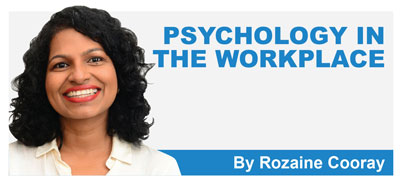Growth Mindset for 2020
View(s):It is mid-year appraisals and the boss insists that you take time to give feedback to your team one to one. Worse still, when you will have to sit before him to receive his feedback about you; feedback culture has never been your cup of tea; Ignorance is bliss, you think.
Do we possess a growth mindset? It is likely that most of us who read this article will answer, ‘yes!’ In fact, are we not engaging in a growth and learning activity by reading this very article? You may mentally refer to the pile of books and articles that you have perused to expand your mind; the discussions, the videos, the professional forums you have dedicated your time towards, to learn and to expand your mind. However, to fully qualify to having a learning and growth mindset, you must first discount all tell-tale signs of a fixed mindset.
A fixed mindset suggests that an individual is resistant to novelty, change, and new learning. While this polar definition is very easy to disregard, unfortunately, most of us are present with signs of fixed mindsets every day. Be it the frustrations in adapting to a new system, receiving feedback and ready to be disputed, to the moment of discomfort prior to engaging in a challenging and novel task, the paralyzing effect of the fixed mindset makes its way to the most avid learner at specific times.
Fixed mind-set and a stagnated system
A fixed mindset not only appears in our resistance and reaction to current and potential change, but also in how we respond to existing realities. Most of us are guilty of being aware of the inconsistencies and weaknesses of the existing systems we are a part of; whether it be the processes and structures of an organisation, to the larger issues of society, and being complacent about it. Many of us are quick to complain, to point out a shortcoming; but are less likely to orient ourselves to resolve the issues in front of us. True that it might be a sleeping giant refusing to move, but by not proactively working towards changing flawed systems, by accepting and bearing with systemic issues just because they’ve been this way for years, we succumb to a fixed mindset. And I know that I am personally guilty of this.
Passive learning and education system
Yet another way in which many fail to demonstrate a growth mindset is through passive learning. Passive learning can be understood as learning without reflection, critique, or application (possibly encouraged in the spoon-feeding tuition cultures and scoring in exams after many attempts of past-exam-papers). We have been conditioned to seek instant gratification and quick DIY-fixes. In learning, we seek for lists and prescriptions such as ‘5 ways to achieve purpose’, ‘10 steps to becoming a better manager’, or the ‘3 steps to making a good argument’.
Our tendency to gravitate toward a more fixed mindset is the work of many years of growing in a particular way. Our education systems are structured in such a way that we learn only passively, learning as we are told, rarely actively questioning the content. We are taught to operate within a frame that is age-appropriate and standardised to pass exams and not encouraged to push beyond, to stretch the frame, to challenge authority. The after-effects of this fixed boundaries in education, manifest in all of us as a fixed mindset.
Post-truth phenomenon
In the age of learning and engaging with knowledge and content on social media, one fact that is hard to ignore, is the tendency to emotionally evaluate the content; when we attach our own emotion, our story or our opinion on what is truth and false, we run the risk of clouding the logic, rational and critical thinking.
Moving from the limiting to the limitless
If the roots of our fixed mindsets are so embedded in our experiences, is it something that can be changed? None of us want to live with knowing that we ourselves impede our own progress. In an era where we are taught to trust and believe only in ourselves, our desire is to see our self-determination as that which propels us upwards and onwards.
With the dawn of a new decade, the gift of a growth mindset makes us more reflective, receptive to valid feedback, innovative, accepting of others, sharing of ideas, collaborating in teams and letting go of our failures and disappointments while retaining the learnings.
Are you ready to set goals for 2020; start with a question: “Am I ready to learn with humility and persevere to break those limiting walls in my mind?” To grow as a country, we need to grow as citizens, not only materially but more importantly from within, to conquer the possibilities available for the one who can see things differently.
(The writer is a Business Psychologist, the Founder of Forté Consultancy and the author of ‘From Crisis to Character’ and a co-author of ‘Rockstars-Creating Stellar Performers in Organizations’. She can be contacted on rozaine@forte.lk).


